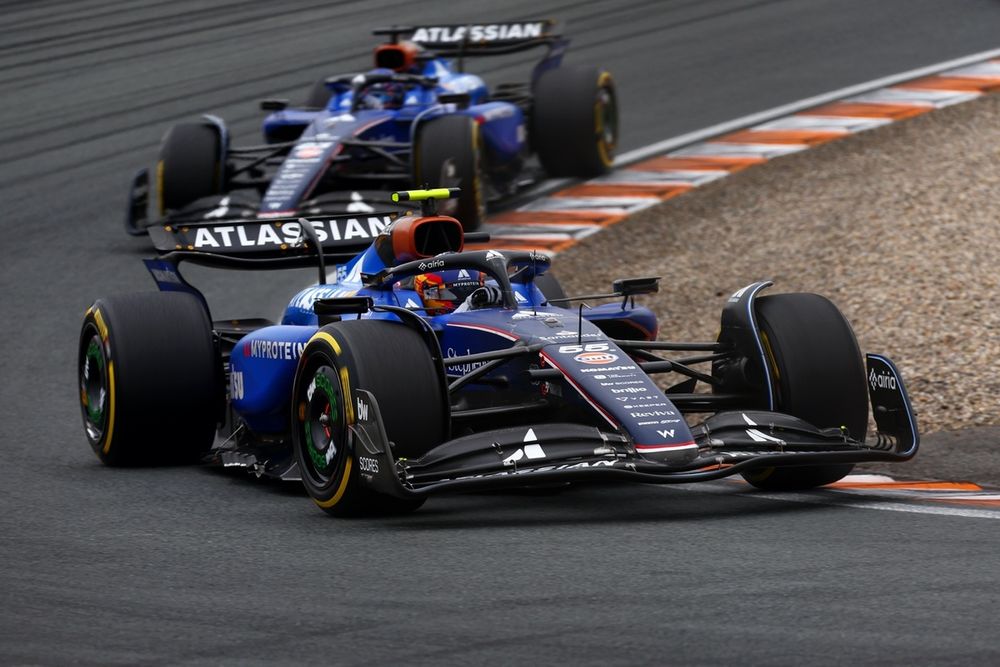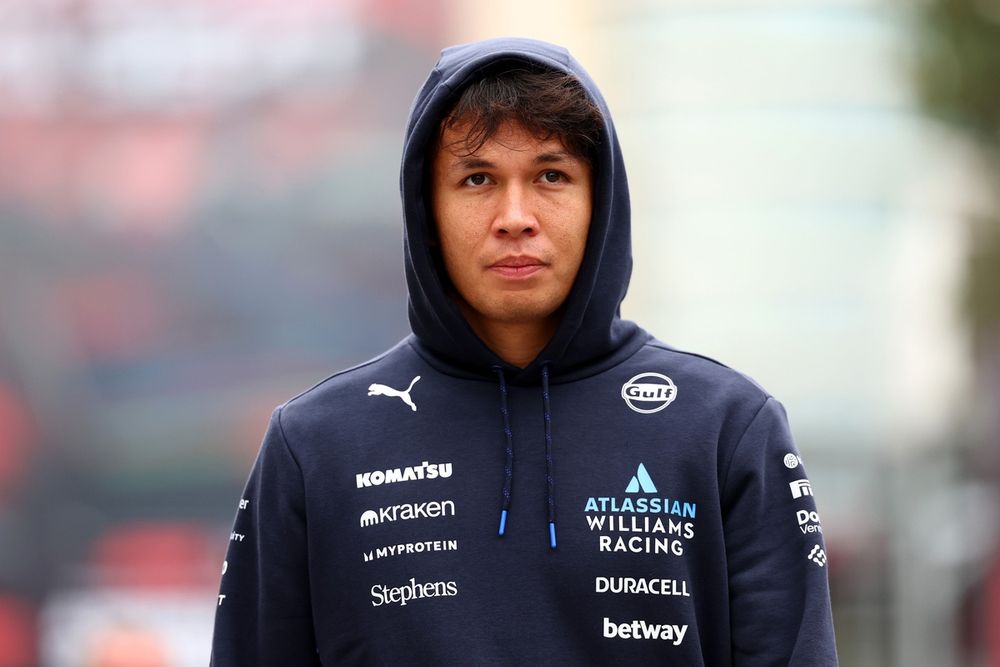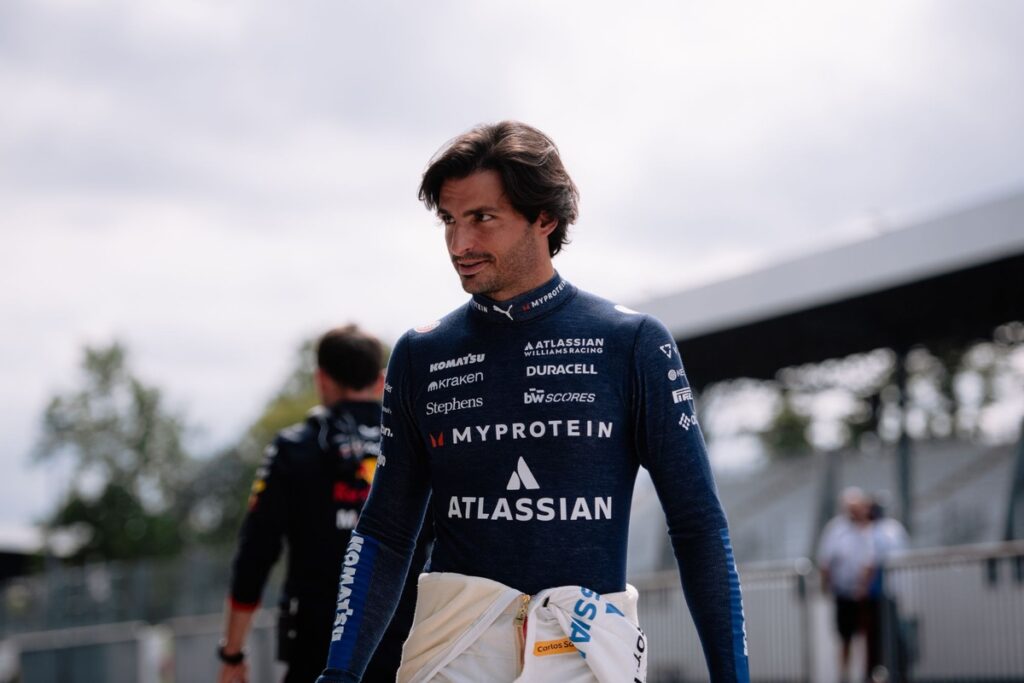A jubilant Carlos Sainz reckons the overturning of his penalty from the Dutch Grand Prix is a “breakthrough” moment for Formula 1 amid debates over racing guidelines.
The Williams driver was handed a 10s penalty plus two penalty points for his collision with Racing Bulls rookie Liam Lawson at Turn 1 in Zandvoort.
Sainz attempted an overtake around the outside but his front right tyre collided with Lawson’s rear left after the Kiwi had drifted to the left mid-corner, causing damage to both cars.
Stewards gave Sainz the penalty because they believed Lawson had “the right to the corner” as his car was ahead at the apex, but this incensed Williams who later launched a protest.
The result of said protest was revealed last Saturday, in which stewards revoked the two penalty points it had given Sainz though his finishing position remained 13th as he was over 10s behind Lawson in front.
Sainz was nevertheless happy at the outcome as, speaking ahead of this weekend’s Azerbaijan Grand Prix, he said: “It’s a breakthrough because it’s the first time that I’ve managed to present new evidence and accept a hearing.
Liam Lawson, Racing Bulls Team
Photo by: Simon Galloway / LAT Images via Getty Images
“We tried before and we never managed in other teams, so it shows that the mechanism is there and is there for a reason, which I’m finally happy that we can use that mechanism in the case where it’s black and white like it was in my case.”
At the time Sainz questioned the level of F1 stewarding, who are volunteers that only work on specific grands prix rather than covering the whole 24-round calendar.
Sainz therefore thinks a solution to better and more consistent decisions is appointing full-time stewards and doesn’t think finances should be a hurdle to overcome.
“As a group, FIA, if we all agree, that should be the way forward where at least two of the three stewards are permanent and we have one rotational for teaching purposes and sporting fairness purposes, to have always one rotational but two permanent,” said the Grand Prix Drivers’ Association director.
“We shouldn’t care about who pays because there’s enough money in the sport to pay those salaries, the same way that there’s enough money in the sport to pay the salaries of all the other people.
“So if that’s the right way forward, I cannot believe we’re talking about those salaries.”

Carlos Sainz, Williams
Photo by: Joe Portlock / LAT Images via Getty Images
But Sainz also thinks it hasn’t happened yet because “not everyone agrees the same way” and even if it were to be implemented, improvements over racing guidelines are still needed.
“I think the guidelines have been an effort to make it very clear for the stewards and the drivers to know who is likely to have responsibility for the incident,” said the 31-year-old, who has won four grands prix.
“But I’m not going to lie, I think they haven’t had the impact that we all wished they had in terms of making it clearer.
“It’s clear on paper and when you read it, but then on the execution and the racing, like we always see, it’s not as clear.”
His Williams team-mate Alex Albon even claimed “I still don’t really know how to properly race” and Sainz thinks a factor behind this could be that there’s too much subjectiveness in incidents.
“We cannot forget the fact of a very important word that is ‘guidelines’,” said Sainz. “I think guidelines is not a rule, it’s a guideline to how to judge an incident.

Alexander Albon, Williams
Photo by: Clive Rose / Formula 1 via Getty Images
“There’s not a rule that says, ‘I cannot go around the outside of a corner’. There’s a guideline to say if you are at the outside of the corner, you’re very likely to be, and you don’t back out of it and the two cars collide, it’s very likely that you will be the car penalised, but it’s a guideline, not a rule.
“Why? Because the perfect example is Zandvoort, if a car on the inside loses control of the car and creates the accident, there’s nothing wrong with you trying to be around the outside of a corner if you don’t create a crash.”
He added: “I’ve been racing my whole life, and in the car, if I’m honest, I don’t think about the guidelines.
“I think more about clean racing and what I think is fair, and I go by muscle memory of my last 20 years of racing, and I always try and keep it fair.
“But when there’s a touch, a crash that I know I haven’t done anything wrong about, I know that in these cases you need to use common sense.”
Read the full article here

